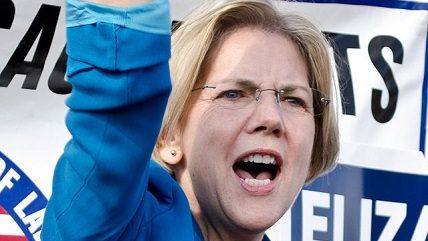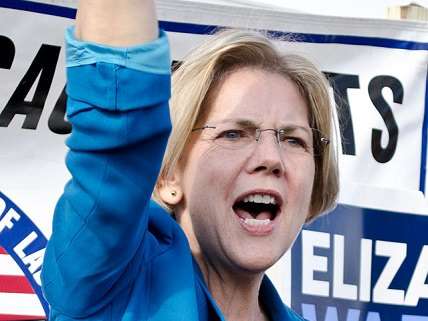The Consumer Financial Protection Bureau Should Stop Hurting the Poor
Why overregulation of payday lenders is a bad idea


Combating bad ideas would be much easier if they were all backed by ill intent. More often than not, however, the opposite is true, and the worst government policies are enacted with the intention to help. Such is apparently the case with the aggressive campaign by the Consumer Financial Protection Bureau to eliminate the payday lending industry.
Overstepping statutory boundaries to go outside the agency's originally intended scope of power, CFPB regulations for payday lenders would, among other things, require them to verify the income, financial obligations and financial history of potential borrowers before offering a loan. That's not an unreasonable cost for a mortgage, but it's an excessive and unjustifiable burden for a small-dollar loan.
Besides, the overbearing, paternalistic agency fails once again to consider the unintended consequences of its requirements. The rules would, for instance, place an arbitrary cap on the interest rate financial institutions can charge. That might seem reasonable to those who balk at the high rates payday lenders charge compared with traditional loans, but it makes little sense to compare a relatively small two-month loan to a substantial sum repaid over several years or even decades.
Also, payday lenders service riskier borrowers with short-term loans and must therefore assess higher interest rates to cover the greater likelihood of default. Some call this predatory, while others call it good economics. Turning a profit on such high-risk loans requires much higher percentage rates. That's why the short, small-dollar loans wouldn't be economically viable at rates the CFPB would impose, and the agency's own analysis confirms that most small-dollar loans simply wouldn't be offered at all if the rules were to be adopted.
To the bureaucrats determined to protect Americans from themselves, it's a benefit to reduce access to loans that some use irresponsibly by getting stuck in so-called debt traps, where new loans are taken out just to pay off old ones. Yet the demand for payday loans exists for a reason. Those of limited means or who live paycheck to paycheck often have no other option for accessing credit when facing unexpected costs, and they would be worse off by having their choices limited even further.
This explains not only the existence of payday lenders but also their popularity; there are more payday lender locations in the United States than McDonald's restaurants.
CFPB Director Richard Cordray, while being grilled last month by members of Congress, defended his attempt to gut the industry by arguing that he "can't in good conscience" not take action. That Cordray has the opportunity to clear his conscience, however, is little comfort to the millions of Americans who would be negatively impacted by his agency's proposed regulations.
Someone struggling to get by with limited access to credit whose car suddenly breaks down won't be thanking Cordray for his nannyism when it means being unable to repair the only means for getting to work.
Compounding the issue is the fact that the CFPB, which was designed by Congress to have an unprecedented level of independence and power with very little oversight, is overriding existing state regulations of the industry. So onerous and out of proportion with current rules are CFPB's proposals that not a single state currently comes close to matching them.
Cordray wishes to impose his personal judgment for how to manage finances on individual Americans everywhere, and he justifies this as an act of compassion. But there's nothing compassionate about Washington bureaucrats denying Americans access to services that make their lives easier.
COPYRIGHT 2015 CREATORS.COM


Show Comments (47)